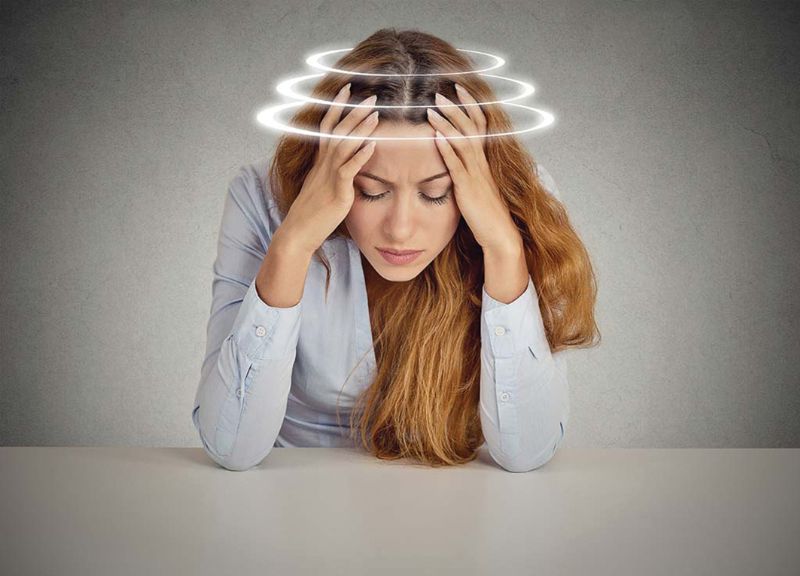- Home
- News, Articles & Reviews
- All Health & Beauty
- Looking Good, Feeling Great
- Medical Health
- Mirror Mirror on the Wall
- Style & Fashion
- General
- Vintage & Sustainable Fashion
We are hiring! Please click here to join our growing magazine delivery team in Gloucestershire!
Areas
Health & Beauty
Archive

Have you heard of PoTS?
All Areas > Health & Beauty > Medical Health
Author: Holly Hannigan, Posted: Wednesday, 25th July 2018, 09:00
You may not be alone if you have never heard of PoTS, which stands for Postural Tachycardia Syndrome. This syndrome is a chronic health condition and can be debilitating and life altering for many.
Symptoms include headaches, dizziness, fatigue, palpitations, sweating, shortness of breath, chest pain, nausea and fainting, all associated with the rise in heart rate of greater than 30 beats per minute when moving from the lying to upright position, or a heart rate of greater than 120 beats per minute within 10 minutes of standing.
People with PoTS often suffer ‘Brain Fog’
To be diagnosed with PoTS you must experience a number of the symptoms while standing up and find that they are relieved when lying down. People with PoTS often suffer ‘Brain Fog’, which is difficulty with thinking or concentrating. This, along with many of the other symptoms, can cause embarrassment and awkward situations for people, especially when they are undiagnosed.
Even when people receive a diagnosis, they may find that as it is a relatively unknown condition (even by some medical professionals) their symptoms may be disregarded or misunderstood.
For an accurate diagnosis, medical professionals will often use an ECG to rule out any other heart problems. The Active Stand Test is where under supervision the patient will have their heart rate and blood pressure measured after resting lying down, then immediately after standing and then at 2, 5 and 10 minutes.
The Head-Up Tilt Table Test can be used to diagnose PoTS by lying on a table that can be tilted to an angle of 60 to 70 degrees in a quiet, dimly lit, temperature controlled room. Blood pressure and heart rate are recorded in a continuous manner. Other tests include a blood test, 24 hour urine collection and 24 hour ambulatory blood pressure and heart rate monitor.
Symptoms may vary day to day, making management challenging
Symptoms of PoTS may vary day to day, making management challenging, however changes in lifestyle can help drastically without the need for medications. Pace yourself throughout the day, plan your day in advance and make sure you allow for rest before and after a demanding activity. Avoid stress and use relaxation tools such as self hypnosis and meditation to ease stress.
Elevating the head off the bed and using mobility aids if required are also helpful in managing PoTS. Light to moderate exercise has been proven to be beneficial and even curative in some cases – as always, start slow and gradually increase time and intensity.
At this moment there are no approved medicines for the treatment of PoTS. The aim of medication is to help control symptoms so that general fitness can be improved. Treatments must be tailored to each patient and side effects should be monitored very closely.Other Images
Copyright © 2024 The Local Answer Limited.
Unauthorized use and/or duplication of this material without express and written permission from this site's author and/or owner is strictly prohibited. Excerpts and links may be used, provided that full and clear credit is given to The Local Answer Limited and thelocalanswer.co.uk with appropriate and specific direction to the original content.More articles you may be interested in...


© 2024 The Local Answer Limited - Registered in England and Wales - Company No. 06929408
Unit H, Churchill Industrial Estate, Churchill Road, Leckhampton, Cheltenham, GL53 7EG - VAT Registration No. 975613000You are leaving the TLA website...
You are now leaving the TLA website and are going to a website that is not operated by us. The Local Answer are not responsible for the content or availability of linked sites, and cannot accept liability if the linked site has been compromised and contains unsuitable images or other content. If you wish to proceed, please click the "Continue" button below:




